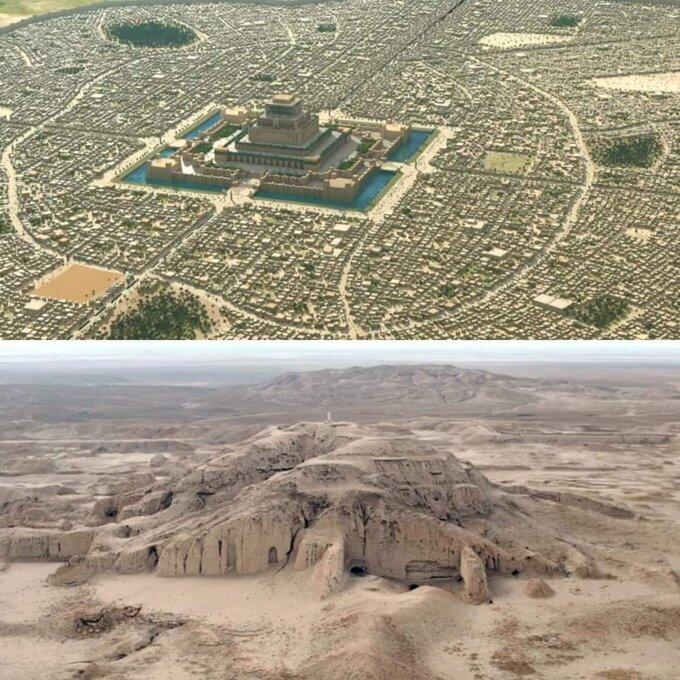
Uruk, as it might have appeared in the 4th millennium BCE, was one of the world’s earliest cities, located in present-day Iraq. Emerging as a key hub of trade, culture, and commerce, Uruk reached its peak with a population exceeding 50,000, spread over more than 4 square kilometers.
The city was encircled by massive walls that served as protection from invaders. Within these walls, a thriving metropolis flourished, featuring temples, palaces, markets, and workshops. Uruk was also a center for intellectual activity, producing some of the earliest known works in literature and science.
In fact, the earliest examples of writing were discovered in Uruk, dating back to the late 4th millennium BCE. Initially, writing was used for recording economic and bureaucratic transactions, but over time, it evolved to serve purposes like literature and religion.
Uruk is perhaps best known as the home of the legendary King Gilgamesh, the protagonist of The Epic of Gilgamesh, the world’s oldest surviving literary work.
Uruk’s influence spread across the ancient world. Its writing system was adopted by neighboring civilizations, while its art and architecture left a lasting impact on other cultures.
